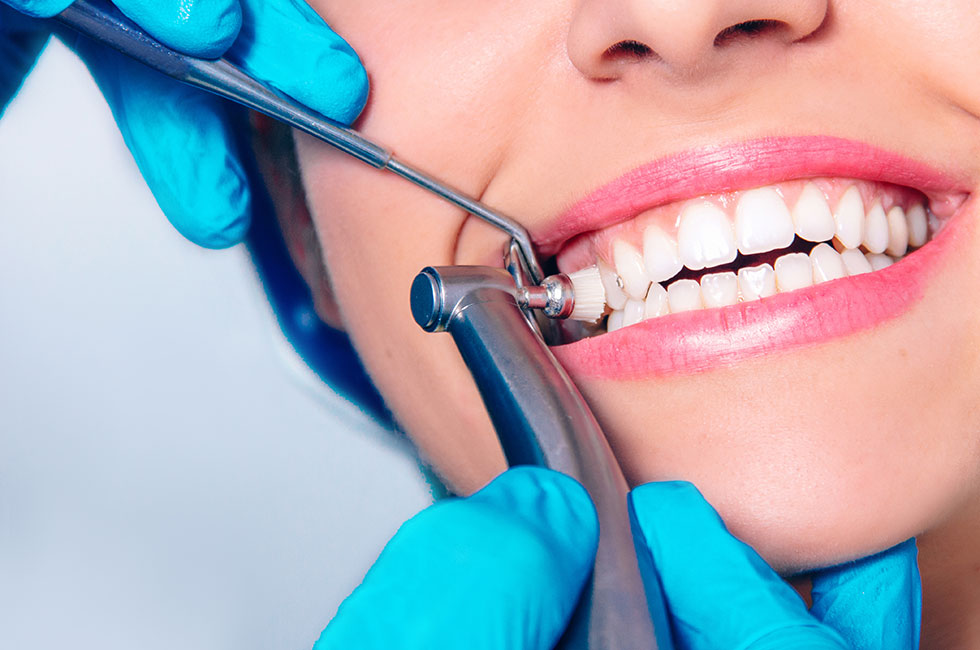Maintaining good oral health goes beyond brushing and flossing at home. Even with the best daily routine, professional teeth cleaning plays a crucial role in preventing cavities, gum disease, and other dental issues. One of the most common questions people ask is: “How often should I get my teeth cleaned by a dentist?”
The answer depends on your oral health condition, lifestyle habits, and risk factors. Let’s break it down to help you understand why teeth cleaning is important, the recommended frequency, and what you can expect during your dental visits.
Why Professional Teeth Cleaning Is Necessary
Brushing and flossing remove a lot of plaque, but not all of it. Over time, plaque hardens into tartar, which can only be removed by a dental professional. If left untreated, tartar buildup can lead to gum inflammation, bad breath, and even periodontal disease.
Here are some key benefits of regular professional teeth cleaning:
- Prevents cavities by removing plaque and tartar.
- Reduces risk of gum disease, which can damage the bone supporting your teeth.
- Freshens breath by eliminating bacteria buildup.
- Brightens your smile by removing surface stains.
- Helps detect problems early, such as cavities, oral cancer, or early signs of decay.
The Standard Recommendation: Twice a Year
For most people, dentists in DANTBATRISA - The Family Dentist recommend professional teeth cleaning In Chandkheda Ahmedabad every six months. This routine schedule ensures that tartar buildup is kept under control and that potential issues are spotted early.
Visiting every six months also helps keep your smile looking clean and polished. Plus, regular cleanings combined with dental exams give your dentist a chance to monitor your oral health and provide preventive advice.
Who May Need More Frequent Cleanings?
While two visits per year is the standard guideline, some individuals may benefit from more frequent dental cleanings. Your dentist may recommend visiting every three to four months if you fall into any of these categories:
- Gum disease patients – People with gingivitis or periodontitis need closer monitoring and treatment to prevent progression.
- Heavy tartar formers – Some people naturally produce more plaque and tartar, requiring extra cleanings.
- Smokers – Tobacco use increases the risk of gum disease and staining.
- Diabetics – Poorly controlled diabetes can increase susceptibility to infections, including gum problems.
- Orthodontic patients – Braces and aligners make it harder to clean teeth, raising the risk of buildup.
- Pregnant women – Hormonal changes can increase the risk of gum inflammation (pregnancy gingivitis).
- History of cavities – If you frequently get cavities, extra cleaning sessions may help prevent further decay.
What Happens During a Professional Teeth Cleaning?
Many people avoid dental visits because they are unsure of what to expect. Knowing the process can ease anxiety and encourage more regular visits.
Here’s a step-by-step overview of a typical dental cleaning:
- Oral examination – The dentist or hygienist checks your teeth and gums for signs of cavities, inflammation, or other issues.
- Scaling – Using special instruments, plaque and tartar are carefully removed from the teeth and gumline.
- Polishing – After scaling, your teeth are polished to remove stains and make it harder for plaque to stick.
- Flossing – Professional flossing ensures that all debris is cleared from between the teeth.
- Rinse and fluoride treatment (if needed) – Your mouth is rinsed, and sometimes a fluoride treatment is applied to strengthen enamel.
The entire process is usually painless, though you may feel mild sensitivity if tartar buildup is heavy or if your gums are inflamed.
Signs You May Need a Cleaning Sooner
Even if your next appointment is months away, certain warning signs mean you should schedule a dental cleaning sooner:
- Persistent bad breath (halitosis)
- Bleeding gums while brushing or flossing
- Noticeable yellow or brown tartar deposits on teeth
- Tooth sensitivity to hot, cold, or sweet foods
- Loose teeth or gum recession
- Stains that brushing cannot remove
Ignoring these symptoms can lead to more serious oral health issues, including periodontal disease, which may require advanced treatments.
How to Maintain Clean Teeth Between Visits
While professional cleanings are essential, daily oral care keeps your mouth healthier between appointments. Follow these simple tips:
- Brush your teeth twice a day using fluoride toothpaste.
- Floss at least once daily to clean between teeth.
- Use an antibacterial mouthwash to reduce bacteria.
- Drink plenty of water to wash away food particles.
- Limit sugary foods and beverages, which promote cavities.
- Avoid smoking and chewing tobacco.
The Bottom Line
So, how often should you get your teeth cleaned by a dentist?
- For most people: Every six months.
- For higher-risk individuals: Every 3–4 months, as advised by your dentist.
Professional teeth cleaning is not just about having a bright smile—it’s about protecting your long-term oral and overall health. Regular visits allow dentists to catch problems early, save you from costly treatments, and keep your mouth healthy and fresh.
Investing in preventive care today will help you maintain strong, healthy teeth for years to come. If you haven’t had your cleaning in the last six months, now is the perfect time to book your appointment and take the first step toward a healthier smile.





Comments